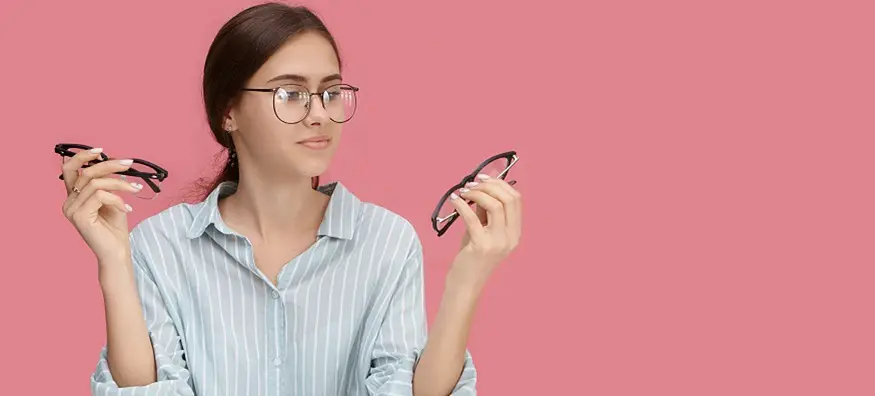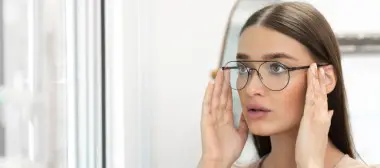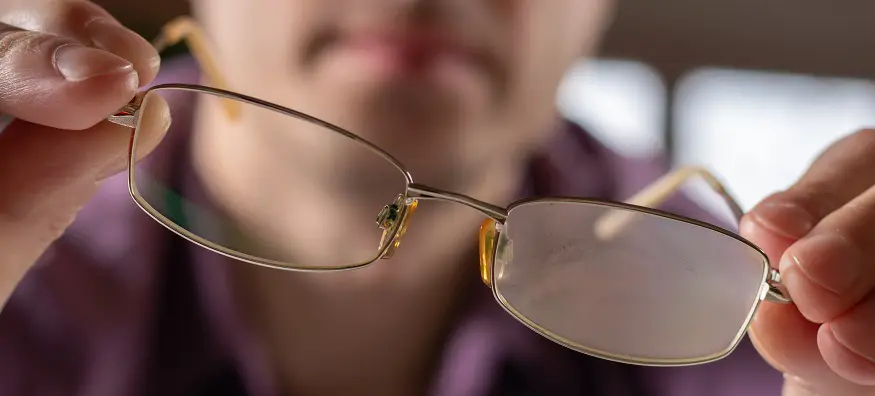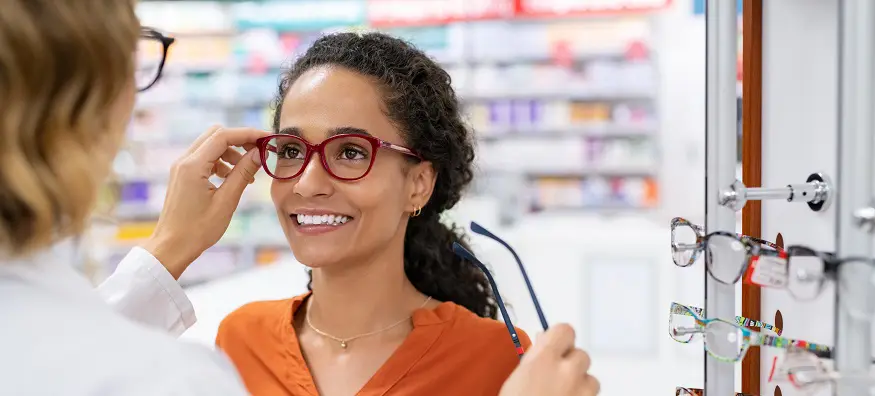When considering what the average lifespan of a pair of glasses is, it's worth noting that there are several factors which contribute to how long a pair of glasses will last. These include the following:
The durability of the frames and lenses
High-quality frames and lenses will be able to endure more wear and tear than a cheap pair and therefore last longer. You may find that a cheap pair will snap under the slightest bit of pressure, whereas a high-quality frame will last you for a much longer time, therefore saving you money.
Your eye prescription
Over time your eye prescription may change, and therefore you'll require you to get a new pair of glasses if you wish to continue seeing clearly. It's recommended you book in for an eye exam once a year(for an adult with healthy eyes, once every two years) to monitor your vision. Regular eye exams can also detect various eye diseases and are essential to taking care of your eye health.
You may also find that your eye prescription changes based on various lifestyle factors; for example, if you find yourself spending much time in front of a computer screen. This can cause digital eye strain, and you may find that you require special blue light glasses.
Lens coatings
The special coatings on the lenses can wear down over time, especially if you don't take care to store them away properly. It would help to put your glasses in a case or a pouch such as our Feel Good Pouch. Made from a high-quality, soft microfibre material. The pouch doubles as a cleaning cloth for lenses so that you can make sure they're protected on the go.
How well you take care of your glasses
Failing to clean your glasses can also contribute to the wearing down of special coatings on the lenses. A thorough clean will not only ensure visual acuity but will also guarantee that your glasses last longer.
You should avoid using alcohol to clean your glasses as this can interact with the lens coatings and cause them to wear down. Another thing to avoid when wiping down your glasses is materials such as shirt sleeves or tissues.
Microfibre cloths such as the one included in the Feel Good Cleaning Kit is an excellent choice for cleaning glasses with. The handy kit can be used on all spectacle lens types and also consists of a 30ml bottle of alcohol-free lens cleaner, and a 3-in-1 keychain screwdriver so that you can tighten any loose bolts and screws on your glasses when you're out and about.
Giving your glasses a deep and thorough clean once a week will ensure that they last longer and that the lenses stay intact. For tips, visit our Eye Care Hub and check out our article 'How to Clean Glasses'.
How long should glasses last?
Glasses should typically last between one to three years; however, the average lifespan of a pair of glasses can vary depending on the frame quality and how well you take care of them.
How do you know when you need new glasses?
Signs that you may need a new pair of glasses include:
- You're getting headaches-an out of date prescription can lead to eye strain and headaches even if your vision seems normal
- You find yourself squinting a lot-people tend to squint to allow their eyes to focus better. If you find yourself squinting, you may need a new prescription
- You have scratches on your glasses-scratches can affect your vision. If your glasses are scratched, it's worth investing in a scratch-resistant coating when you purchase a new pair. Even though they are not 100% scratch-proof, they can still help to reduce minor scratches.
- It's been over a year since you last had an eye exam-it's recommended that you have a comprehensive eye exam every year. An eye exam may reveal that you need a new prescription and therefore new glasses too
- You're having trouble cleaning them-some glasses feature special coatings which can break down over time. This can leave a film which prevents you from being able to clean your glasses properly
- You're glasses are outdated-new technologies are constantly being developed to help improve visual acuity and give the wearer optimal comfort. If you bought your glasses a while ago, it's worth researching the market to see if a new pair of glasses with updated technology might serve you better
Is it OK to use old prescription glasses?
It's not recommended to use old prescription glasses. While wearing an old prescription won't cause any harm, it can result in a temporary headache and cause discomfort due to blurriness. Old prescription glasses will not do the job of correcting your vision properly.
Where can I buy glasses?
Whether you're looking for single vision reading glasses or glasses for distance, you'll be sure to find a wide range of high-quality designer glasses at Feel Good Contacts from leading brands such as Ray-Ban, Michael Kors and Oakley. For a more affordable pair without compromising on quality, you can shop our very own Feel Good Collection.
All of our lenses are single vision lenses and cater for a wide range of vision correction. You can choose from clear lenses, blue light lenses, transitions and sun tints which are great if you're looking to turn your glasses into prescription sunglasses. Take a look at Lens options and coatings to decide which lenses will suit you best.
In addition to this, if you don't wear glasses and wish to wear contact lenses instead, you'll find our extensive range of contact lenses can correct a range of vision problems. Whether you're looking for progressive contact lenses or glasses to correct a refractive error, you'll find them for the cheapest UK price guaranteed at Feel Good Contacts.
When it comes to the lifespan of your glasses, it all boils down to quality and how well you take care of them. Of course, changes in your prescription can also determine the lifespan of a pair of glasses, and you should make sure you schedule in a comprehensive eye exam once a year.
Disclaimer: The advice and suggestions in this blog are for informational purposes only and are not a substitute for medical care. Before trying any products or remedies, consult with an eye care professional. See our Editorial Policy for details on how we review our blog.




















